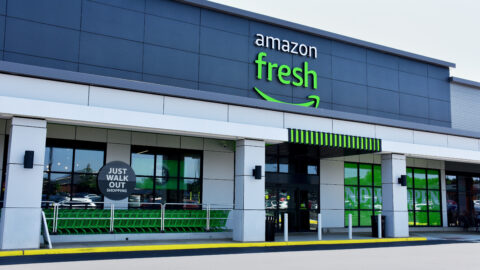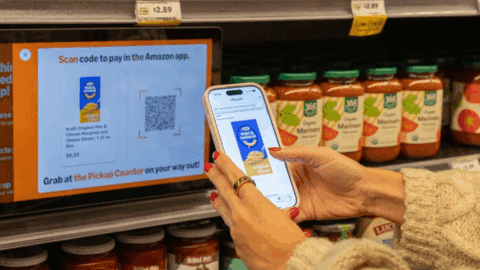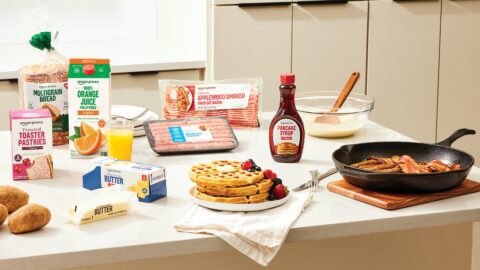Speculation abounds within the retail industry as to whether grocery titan Kroger will swallow Whole Foods Market. Although neither retailer has commented on the matter, reports have indicated that Kroger could pay as much as $40 per share for the beleaguered natural foods supermarket chain.
While Whole Foods once stood tall as the premier name in organic goods, the retailer’s position hasn’t been as sturdy recently, as more brands expand their natural and local food offerings. While direct competitors such as Trader Joe’s have long delivered similar products at more affordable prices, Kroger, Costco and Walmart have all come out with cheaper organic offerings of their own, taking natural foods from a niche market into the mainstream.
As Kroger continues to gain more market share within natural foods on its own, reeling in more than 10% of its sales through these offerings, it isn’t clear whether the retailer would see a substantial benefit by owning the Whole Foods brand. While Whole Foods reported sales of $15.4 billion in fiscal 2015, up 8.4% from $14.2 billion in 2014, its net income fell 7.4%, from $579 million down to $536 million, in the same period.
The acquisition would add more than 430 locations to Kroger’s already large store count. But with ongoing price sensitivity among consumers, a Kroger acquisition could mean significant changes to the existing Whole Foods pricing model. The question then would be whether Whole Foods’ reputation for offering high-value products, which has been a key point of differentiation for the brand, would be sustainable.
As of July 2016, the consumer price index for food consumed in U.S. homes has declined 1.3% year-over-year, according to the U.S. Bureau of Labor Statistics. While this means food across the board is cheaper, the decline has had a negative impact across grocery retail in 2016 (Kroger lowered its fiscal 2016 net earnings guidance by $0.07 per share). Given that food is a necessary purchase, this likely won’t hurt Kroger in the long run as consumers will continue to enter its doors even if prices spike back up again. Whole Foods doesn’t have this advantage, so lower customer traffic may cloud the brand’s long term outlook. Any potential purchaser might balk at the hefty price tag the company is likely to command.
Kroger’s Acquisition Spree Shows Willingness To Diversify
One reason why the Kroger-Whole Foods acquisition rumor mill is believable is Kroger’s recent spree of massive investments, which have diversified the grocer’s brand.
Outside its namesake stores, Kroger has experimented with new ways to bring natural and organic foods into its larger offering, such as the opening of its Main & Vine small-format solo store concept. The 27,000-square-foot space in Gig Harbor, Wash. features artisan foods and culinary specialties, and has a focus on fresh, local and sustainable groceries.
Over the past two years, Kroger has been very busy adding to its retail footprint. In 2014, Kroger completed a $2.5 billion takeover of North Carolina’s Harris Teeter supermarket and acquired online health retailer Vitacost.com for $280 million. The grocer then acquired the Roundy’s grocery store chain for $800 million in November 2015. In March 2016, the retailer reportedly showed interest in purchasing specialty grocer Fresh Market, before private equity firm Apollo Global swooped in with an offer of roughly $1.3 billion.
Additionally, Kroger is investing $260 million this year in the expansion of its Fry’s Foods Stores division, and it acquired a stake in natural foods grocer Lucky’s Market in April.
With Kroger seemingly unafraid to actually spend (or to show serious consideration for spending), the idea that Kroger is testing the market to gauge the true value of Whole Foods seems like a plausible scenario. But since the supermarket chain is actually pulling back capital spending by $500 million in 2016, the acquisition could just be a product of the rumor mill at this point.












